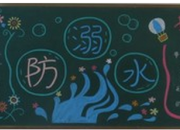高一英语必修3unit1课件
时间:2021-08-31一、词汇过关
starve
【考纲释义】 vt.& vi. 使饿死;饿得要死
The proud man said he would starve rather than beg for food. 那个骄傲的人说他宁愿挨饿也不愿讨饭。
They starved the enemy into surrendering. 他们使敌人饿得投降了。
The homeless children were starved of love. 这些无家可归的孩子渴望得到爱。
【知识拓展】starve 表“感觉很饿”时,可用于进行时态。starve for sth.(= long for sth) 渴望获得某事物 starve to death 饿死
2. gain
【考纲释义】 vt. 获得;得到
He has gained rich experience in these years. 这些年来,他取得了丰富的经验。
The best way to learn is to put what we gain from books into practice. 最好的学习方法就是把我们从书本中获得的知识投入到实践中去。
【知识拓展】 gain 还可表示“赚得;挣得”,尤指因某种服务、劳动或工作而获得的。如:No pains no gains. 不劳无获。
3. gather
【考纲释义】 vt., vi. & n. 集合;聚集;搜集
A crowd gathered to see what had happened. 一群人聚拢起来看发生了什么事。
It was autumn, the time for Crusoe to gather his small harvest of corn. 秋天到了,是克鲁索收割他那一小块玉米的时候了。
For many Americans, Thanksgiving is the only time when all members of a family gather. The holiday is a time of family reunion. 对许多美国人来说,感恩节这一天是所有家庭成员欢聚一堂的难得时光。这个节日是家人团聚的时刻。
【知识拓展】 gather与collect辨析:gather 表示把分散的东西集中到一起,不仅可用于人和物,还可用于把抽象的东西,如力量、印象等聚集起来,也指采花、摘果、采蜜等;collect 则指精心地、仔细选择相似或有联系的东西,来变成有组织的整体的一部分。
4. award
【考纲释义】 n. 奖;奖品vt. 授予;判定
The Olympic winner received a gold medal as an award.奥林匹克的优胜者获得一枚金质奖章作为奖赏。
She has been awarded a scholarship to study at Harvard. 她获得了去哈佛大学读书的奖学金。
They awarded Mr. Brown the gold medal for his fine vegetables at the show. 因其优质的蔬菜展览,他们颁发给布朗先生金牌。
The court awarded custody of the child to the mother. 法院判定孩子的监护权给那位母亲。
【知识拓展】 award 用作可数名词时,指“奖品,奖金,奖赏”,侧重按法律与规定而给予的荣誉。用作及物动词时,常有下列搭配:award sb. sth. (for sth.)“(因)颁发给某人……”,be awarded sth. (for)“(因) 被授予……”。reward 可用作名词或动词,它的意思特指“报答,报偿,酬谢,奖赏”,重点在于对好行为或者功绩的报答、酬谢。常有下列搭配:receive sth. as a reward“因某事而获得奖赏”,reward sb. for“因……而酬谢 / 奖赏某人”;prize 也意为“奖品,奖金”,但它主要用于表示“获得几等奖”或“获奖金额”,特指在竞争、竞赛中获奖,常说win a prize for“因……而获……奖”。
5. apologize
【考纲释义】 vt. 道歉;辩白
I’m not speaking to you until you apologize. 我不会跟你说话,直到你向我道歉为止。
Harry apologized to his teacher for coming to school late. 哈利为上学迟到而向老师道歉。
I must apologize for myself. 我必须为自己辩白。
【知识拓展】 常用句型:apologize to sb.向某人道歉 apologize for sth. / doing sth.因(做了)某事而道歉apologize to sb. for sth. /doing sth. 因某事而向某人道歉
名词apology的相关搭配:make / offer an apology 道歉accept(refuse)an apology接受(拒绝)道歉
二、短语诠释
1. take place发生
Great changes have taken place since 1976. 1976年以来发生了巨大的变化。
In 1919, the May 4th Movement took place in China.1919年,中国发生了五四运动。
【知识拓展】 happen“偶然发生”,指一切客观事物或情况的偶然或未能预见地发生,主语为“事”,相当于不及物动词,没有被动语态;happen to do意为“碰巧”;take place相当于不及物动词,没有被动语态,指事先计划或预想到的事情的发生;break out 仅用于负面场合,多指灾难、战争、疾病等现象的突然发生,同样也没有被动语态;come about属于中性词语。既可用于表达正面事物的发生,又可用于表达负面事物的发生。
2. dress up (in)(使) 盛装;(使)打扮;装饰
We are supposed to dress up as movie characters for the party, what a novel idea! 我们在晚会上要装扮得像电影中的角色,这是一个多么新奇的主意啊!
We dressed up for the school ball on Christmas day. 我们为参加学校的圣诞舞会而盛装打扮。
She dress up in Elizabethan costume for the fancy?鄄dress ball. 她穿上伊丽莎白的服装去参加化妆舞会。
【知识拓展】 dress sb.给某人穿衣;dress oneself 给自己穿衣服;dress in 穿什么衣服
be dressed(in)表示穿着状况
3. play a trick (on sb.) / play tricks (on sb.) 捉弄某人;开某人玩笑
If the neighbours do not give any sweets, the children might play a trick on them. 如果邻居什么糖也不给,那么孩子们就可以捉弄他们了。
It is acceptable to play tricks on your friends on April 1st. 4月1日那天,同朋友们开玩笑是可以接受的。
【知识拓展】 play a joke on sb.戏弄某人 have a joke with sb.与某人说笑话 make a joke about sb. or sth.拿某人或某事说笑话 laugh at sb. 嘲笑某人 make fun of sb.取笑某人
4. look forward to 盼望;期待
We look forward to the return of spring. 我们期待着春天的到来。
People look forward to seeing more excellent players play basketball abroad. 人们期望看到更多的优秀球员到国外去打篮球。
【知识拓展】 以look为中心的一些短语: look after 照料look out 注意;当心 look up 查到;抬头看 look over 翻阅;浏览 look into 调查look up to 仰慕;尊敬 look down upon轻视;看不起
5. keep one’s word 守信用;履行诺言
Once you give someone a promise, you should make it no matter what will happen. This is what is called keep one’s word. 一旦你给了别人承诺,无论发生什么事,你都得实现它,这个就叫“守诺言”。
He always keeps his word. 他一直守信用。
【知识拓展】与word 有关的一些短语: eat one’s words 认错;收回前言并道歉have a word with sb. 与某人谈话have words with sb. 和某人吵架in other words换句话说 in a word 简而言之,概括地说 word for word 逐词地;原原本本地
三、句式详解
1. In India there is a national festival on October 2 to honour Mahatma Gandhi, the leader who helped gain India’s independence. 在印度,十月二日是一个全国性的节日,该节日就是纪念帮助他们获得了印度独立的领袖甘地的。
句中关系代词who引导的定语从句修饰Mahatma Gandhi的同位语the leader。同位语指的是句子中指代同一事物的词语、短语或从句,它和其前的名词构成同位关系。例如:
Mr Li, my English teacher, will be leaving on Tuesday, October 1. 李先生,我的英语老师,将于星期二,即10月1日离开。(My English teacher是Mr Li的同位语)
In this chapter we shall make use of only two of Newton’s laws, the first and the third. 本章我们将只使用牛顿的两个定律:第一定律和第三定律。(the first and the third为two of Newton’s laws的'同位语)
同位语可以由名词从句担当。同位语从句中的that并不是从句结构中的一个成分,而是一个连接词,只起连接作用,无具体词义,但一般不能省略。例如:
The idea that computers can recognize human voices surprises many people. 计算机能够识别人的声音的想法使许多人感到惊奇。
The news that I have passed the exam is true.我通过了考试这一消息是真的。
2. The country is covered with cherry tree flowers so that it looks as though it might be covered with pink snow. 乡村掩映在樱桃花里,它看起来仿佛被粉红色的雪所覆盖。
as though意为“似乎;好像”,在句中引导表语从句。在通常情况下,as though所引导的从句的谓语动词多用虚拟语气,表示所叙述的情况与事实相反。例如:
Why is she looking at me as though she knew me?她为什么那样看着我?像是认识我似的。
He stood there looking at the train and laughing, as though to miss a train was the best joke in the world.他站在那里,望着火车哈哈大笑,好像误了火车是天底下最开心的事儿似的。
so that既可引导目的状语从句,也可引导结果状语从句,可以由以下几点进行区分:
1) 当表达“为了……”、“以便……”的含义时,引导的是目的状语从句;当表达“以至于……”、“因此”的含义时,引导的是结果状语从句。如:
If you do know, answer in a loud enough voice so that all the class may hear. 如果你的确知道,应大声回答,以便让全班同学都可以听见。
It rained hard the day before yesterday, so that she had to stay at home. 前天雨下得很大,因此她只好呆在家里。
2) 当从句的谓语动词有情态动词can, could, may, might, should等时,是目的状语从句;当从句里没有情态动词,且谓语动词是一般现在时、一般过去时或现在完成时等时态时,引导的是结果状语从句。如:
We stopped at Salt Lake City so that we could visit the monument to seagulls. 我们在盐湖城逗留是为了可以参观为海鸥修的纪念碑。
They have walked a long distance so that they are all tired. 他们走了很长的路,所以都很累。
3) 当so that之前有逗号时,引导的是结果状语从句;反之,引导的是目的状语从句。如:
You didn’t plan your revision well, so that you didn’t pass the exam. 你没有好好地按计划复习,结果你没考及格。
The teacher must speak slowly so that the students may understand him. 那位老师必须讲得慢些,以便所有的学生可以理解。
【高一英语必修3unit1课件】相关文章:
2.必修高一英语课件
4.高一英语必修课件











